IN THE 1950s, one in three Engineering undergraduates at the Johns Hopkins University received a Maryland State Senatorial Scholarship. These scholarships, which covered as much as full tuition, were provided to the University through a legislative appropriation that had begun when the Engineering school opened its doors in 1913. Each state senator could award scholarship monies totaling a year’s tuition. Any student from Maryland pursuing an engineering degree could apply.
As a result, most Hopkins Engineering students came from within the state, and these scholarships had a great influence on their decision to study engineering and to attend Hopkins.
By the mid 1960s, the state senatorial scholarship program had evolved to become available to all undergraduates from Maryland. This shift happened simultaneously with the creation at Hopkins of the School of Arts and Sciences, formed from the merger of the School of Engineering Science and the Faculty of Philosophy. This major shift in the structure of undergraduate education helped spark the University’s transformation into an international institution.
When Hopkins re-established an Engineering school in 1979, no state funds were earmarked for Maryland students attending the G.W.C. Whiting School of Engineering. All Engineering-specific scholarships were created through private funding.
Today, state funds still provide support for Hopkins students indirectly through the Sellinger Aid Program, and state senators and delegates can still offer scholarships.
Hundreds of students have been able to attend Hopkins, thanks to the Maryland State Senatorial Scholarships. These alumni may not remember the marks they earned in class, but they do remember how they were taught to think. In fact, many alumni trace their success back to their Hopkins education.
In the spirit of giving back—or, paying it forward—three notable Engineering alumni who received state senatorial scholarships have applied their generosity at the Whiting School to helping future generations of engineers learn how to think.
Memories Recorded
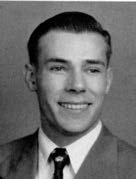
“I could not have started a business without my Hopkins Engineering background.”
—Carl R. Moyer ’51
When he arrived at the Homewood campus from just outside of Washington, D.C., CARL MOYER had a rude shock. Since World War II had just ended, many of his fellow freshmen were veterans who were considerably older and more experienced. But that “shocking” experience led to his success in business and in life.
As a naval engineer, owner of his own company, husband, father, and grandfather, Moyer has been very busy since his graduation in 1951. In 1958, he completed his naval duty and went to work for Ampex Corporation in California. He quickly rose in the ranks of this company that invented videotape recorders. When he eventually left Ampex, he became the director of quality control for Memorex. After gaining considerable experience and knowledge from both companies, he then started his own custom video duplication business, Vidicopy, in 1971. The business was successful, and Moyer remained with it until its closing in 1998. By this time, DVDs had become popular, and rather then explore a new area in the industry, Moyer decided to find out what other experiences life had to offer.
“To this day,” emphasizes the former Electrical Engineering major, “the singular most important lesson I learned at Hopkins is that you need to understand a problem before you try to solve it. This universal principle helped me a great deal in the Navy and in my business.”
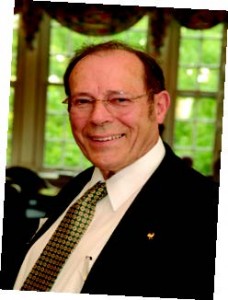
Paying it forward: Moyer realized how important his state senatorial scholarship had been; without it he would not have even considered applying to Hopkins because of the cost. He wanted to give back to the University that had provided him with an exceptional Engineering education, and he wanted to make possible this experience for other students in need. Therefore, Moyer and his wife, Marilyn, endowed a scholarship in the Whiting School. Each year—forever—the income from the endowment will provide aid to an undergraduate Engineering student.
Advice for students: “Work hard. Listen carefully and ask a lot of questions. Don’t be afraid to look at other aspects of science, technology, history, psychology, and even language. These will become more and more important in the future.”
Powerful Motivation
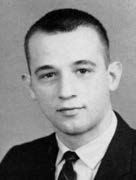
“If somebody does something nice for you, you don’t need to pay them back. Take care of others in the future. That keeps things going in the right direction.”
—Philip M. Adams ’57
(pictured below with his grandson, Benjamin)
PHIL ADAMS admits he stumbled into his Civil Engineering education at Johns Hopkins after a high school counselor suggested he apply for a state senatorial scholarship. That turn of fate took him from odd jobs caring for Easter chicks and assembling Christmas toys to building power plants all over the world.
“The most important thing a college education does is get you your first job,” Adams believes. “But beyond the career, my Engineering background stimulated an interest in so many different things. The liberal arts part of my education enhanced my life. I’m kind of a knowledge junkie, still.”
At Hopkins, Adams held a part-time job cleaning the Civil Engineering lab. After his graduation in 1957, he went to work for the American Bridge Division of U.S. Steel, and eventually moved into the management track at General Electric. He managed GE projects including construction of chemical plants, and traveled to Algeria, Iraq, and Saudi Arabia to oversee building power plants.
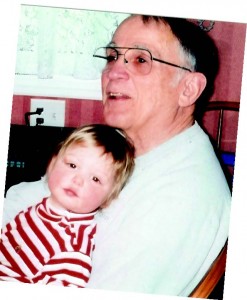
Paying it forward: “I got a really nice gift from the state of Maryland,” Adams affirms. To express his gratitude, in 2004, Adams established a fellowship for a graduate student at the Whiting School by setting aside money in his estate planning. GE provided a matching gift coupled to his estate gift, since Adams is a retiree. Adams was further motivated by the challenge to match gifts issued by Dr. Walter L. Robb and was able to creatively use several resources to create a fellowship.
Advice for students: “Know yourself— who you are and what your strengths are, and go in the direction that you are suited for. Today, the popular thing is to say that you can do anything you want to. But that is not exactly true. Be realistic with yourself. Arrange your life in a way that is suited for you, and so that you can be happy and not continually plagued by disappointment and doubt.”
An Appetite for Learning
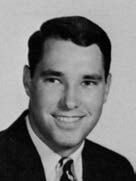
“I think about how I got where I am, and I want to make sure that other people have the same opportunity.”
ALLAN HUSTON was a big man on the Homewood campus after his 1962 arrival. The Maryland native and Industrial Engineering major played basketball and lacrosse, was president of Phi Gamma Delta, and earned a listing in Who’s Who for college students. Yet, he admits, “I didn’t know anything about the future. All I wanted was an education. I thought, ‘I’ll do whatever it enables me to do.’ ”
Above all, Huston recalls, “Hopkins taught you how to think.” He adds, “I know kids today say ‘I need to know exactly what I’ll be doing in the future.’ The truth is, you’ll never know that and if you did, you’d probably miss some of the great opportunities that come your way.”
Following his graduation in 1966, Huston took a manufacturing management job with Procter & Gamble. He moved on to PepsiCo and spent 25 years in key executive positions at four divisions: Frito-Lay, Pepsi-Cola, Pizza Hut, and Kentucky Fried Chicken. He served as president of Kentucky Fried Chicken International for two years before being appointed in 1992 as CEO and president of Pizza Hut Worldwide—the world’s largest pizza company.
Now a restaurant investor based in Dallas, Huston serves on the Whiting School’s National Advisory Council and helped plan his class’s 40th Reunion. In 1994, he was honored with the Whiting School’s Blumenthal Award for Contributions to Management and Technology.
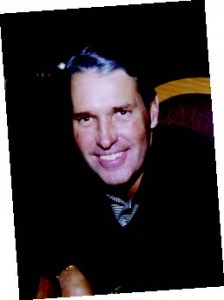
Paying it forward: In recognition of the support that Huston and his brother, Otis Huston ’67, who also majored in Industrial Engineering, had received as students, Huston and his wife, Jane, recently gave $1 million to endow the Huston Family Scholarship at the Whiting School. It was created in memory of his parents, Allan and Elsie.
Advice for students: “Try to embrace it all. Do things that aren’t comfortable, challenge yourself, try to learn new things. To me, that’s the kind of advice you can give to anybody, even a person my age. Continue to evolve.”
—Allan S. Huston ’66




